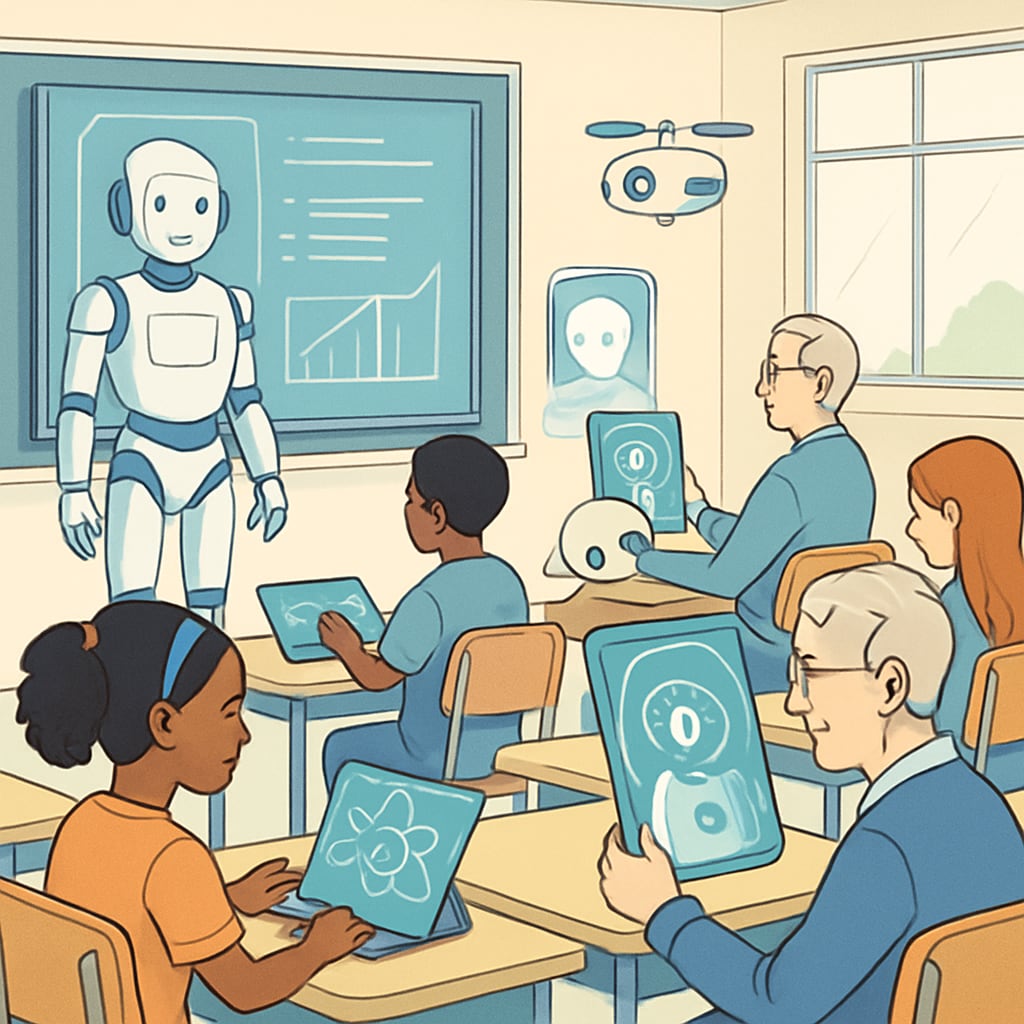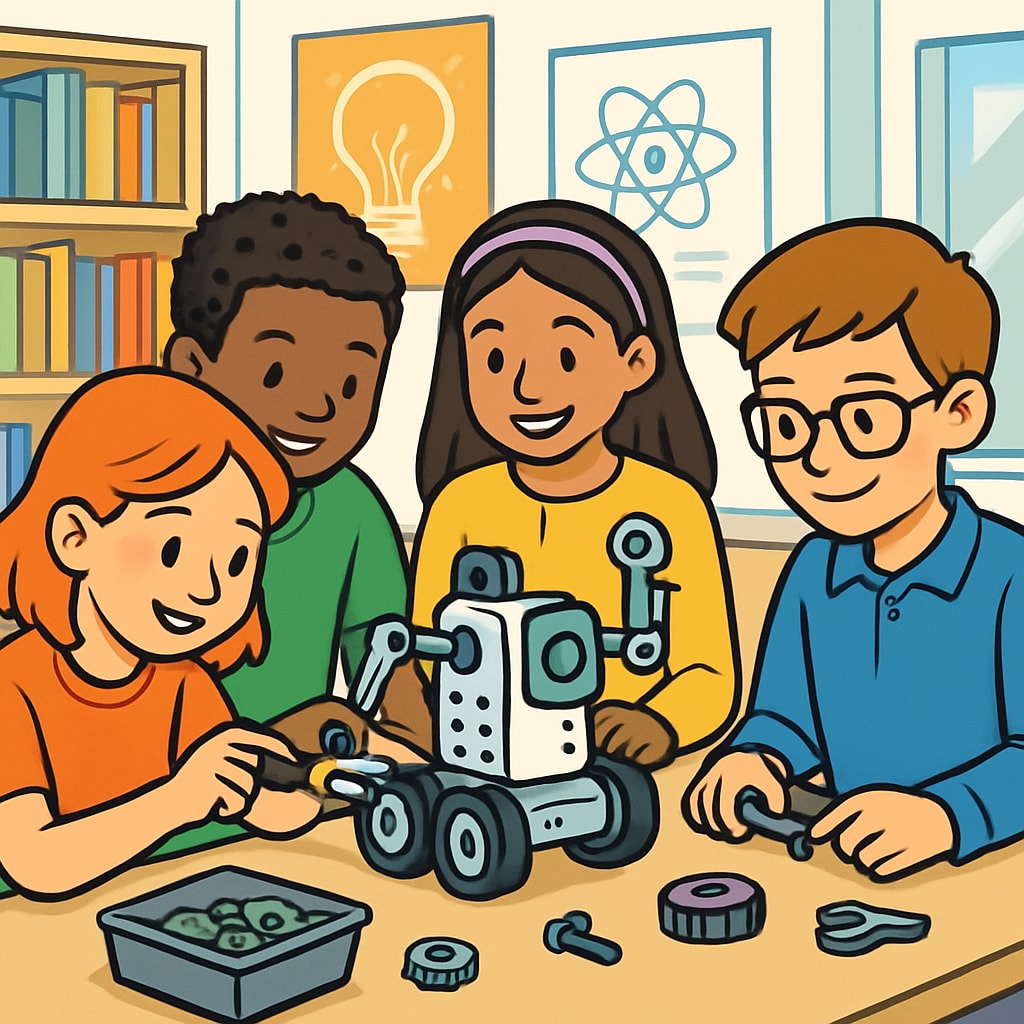Artificial intelligence (AI) is revolutionizing industries worldwide, creating both opportunities and challenges for higher education and career prospects. As AI continues to advance, it is increasingly vital to rethink the purpose of K12 education. Parents and educators must prepare students with future-proof skills to thrive in a world where automation and machine intelligence play a dominant role. In this article, we explore how foundational education can respond to the demands of the AI era, equipping students with the tools they need for long-term success.
How AI is Reshaping Education and Careers
The rapid development of AI is transforming higher education and career landscapes. Many traditional jobs are being redefined or replaced by automation, leading to growing uncertainty about what skills will remain relevant. According to a report on Britannica, AI technologies are now capable of performing tasks once thought to be exclusively human, such as data analysis, customer service, and even creative writing.
This trend raises critical questions about the value of higher education in its current form. Degrees that focus solely on rote memorization or technical expertise in fields susceptible to automation may no longer guarantee job security. Instead, the future workforce will require a blend of technical proficiency, adaptability, and uniquely human skills such as critical thinking, creativity, and emotional intelligence.

The Role of K12 Education in Preparing for the AI Era
To address these shifts, K12 education must evolve to emphasize skills and mindsets that cannot be easily replicated by machines. While STEM (science, technology, engineering, and mathematics) education remains essential, it is equally important to integrate interdisciplinary learning that fosters problem-solving, communication, and ethical decision-making.
Key areas to focus on in K12 education include:
- Computational Thinking: Introducing students to coding and algorithmic thinking helps them understand how AI works and how to interact with technology effectively.
- Social-Emotional Learning (SEL): Developing empathy, collaboration, and leadership skills ensures students can navigate complex interpersonal dynamics in AI-augmented workplaces.
- Resilience and Adaptability: Encouraging students to embrace change and learn from failure prepares them for the dynamic nature of future careers.
- Ethics and Digital Citizenship: Teaching students to consider the ethical implications of AI fosters responsible innovation and use of technology.
By prioritizing these areas, K12 education can lay the foundation for lifelong learning and adaptability in an AI-driven world.

Career Prospects in the Age of AI
With AI automating routine tasks, the most promising career paths will likely be those that leverage human creativity and emotional intelligence. Roles in fields such as AI ethics, data storytelling, and human-AI interaction design are expected to grow significantly. Additionally, industries like healthcare, education, and creative arts are likely to remain resilient, as they require nuanced judgment and a deep understanding of human needs.
For example, a Wikipedia entry on career development highlights the importance of continuous skill-building and adaptability in navigating future job markets. Students who cultivate a growth mindset and embrace lifelong learning will be better positioned to seize opportunities in emerging fields.
Moreover, parents and educators play a crucial role in guiding students toward careers that align with their strengths and passions while remaining adaptable to technological advancements. Career counseling and exposure to diverse fields during the K12 years can help students make informed decisions about their futures.
Conclusion: Rethinking Education for a New Era
Artificial intelligence is reshaping the way we think about education and career prospects. By focusing on skills that complement rather than compete with AI, K12 education can equip students to navigate the uncertainties of an automated future. Parents, educators, and policymakers must work together to ensure that foundational education evolves to meet the demands of the AI era, empowering the next generation to thrive in a world of constant change.
As we look ahead, it is clear that the key to success lies not in resisting the rise of AI, but in embracing its potential while nurturing the irreplaceable qualities that make us human.
Readability guidance: This article uses short paragraphs and clear subheadings for improved readability. Lists summarize key points, and transitional words guide the flow of ideas. Images depict students engaging with future-ready skills, aligning with the article’s focus on education and career preparation.


